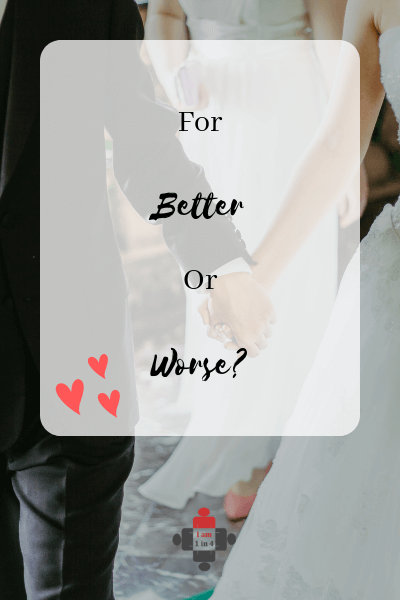
By Laura
I’ve been with my husband for almost 10 years, half of this married. I love him and we are first and foremost absolute best friends. But, I was diagnosed with OCD over 3 years ago having probably suffered from it for a lot longer.

Not understanding why
When I first got diagnosed, my husband was not there for me at all. In fact, he didn’t believe I had OCD – telling me that I was just feeling down and that everyone does. He did not listen to my feelings, my intrusive thoughts – and then when I didn’t share he wouldn’t speak to me as he preferred to ‘give me space’.
It took a long time and a lot of intervention from my mum to get him to understand how I feel. Even now, though, if I have a bad day he’ll ask why – as if something must have caused it, as if my illness itself is not sufficient to have ‘bad days’.
If you’re reading this as a friend or partner of someone suffering with a mental illness please never ask them this. They will panic thinking that they’re stupid for just having a bad day. They will try to assign a cause just to give you an answer.
One-man cheer-leading squad
My husband, in general, is much better these days. He is sensitive to my needs, understands when I need a day at home and has become my own one-man cheer-leading squad – applauding me every time I manage to do simple things. This is wonderful, but I ask myself where is the equality? Because of my OCD my husband is never allowed to have ‘off-days’ as it might trigger something with me.
He has to be my 24/7 support network – motivating and praising me. He has to hold me when I have a bad day and can’t get out of bed for crying. Even more, he has to respond to my desperate texts telling him I’m not enough. But when is enough enough? When do our wedding vows change from ‘for better or worse’ into him being my drained full-time human life support machine?
I’m genuinely so thrilled at how mental health is being openly spoken about and how the secrecy is slowly diminishing. But we rarely spare a thought for those that have been – and continue to be – our daily lifelines. Our spouses (or partners, friends, parents…) rarely get a mention when in actual fact my OCD must be as draining and exhausting on my husband as it is for me. At least some days.
Who supports our supporters
We all need to remember – whatever stage in our journey we are at. Whether they have accepted our illness or whether they are still coming to terms with it. Whether they are the strongest person you know or whether they are sensitive and kind. That these people are in our lives because they choose to be.
Value them. Especially when you have the energy, as some days you might not! Listen to them when they have a bad day, if you can. Or if not, like me, reach out to a close relative and ask them to be a point of contact for your spouse (I asked his sister).
So even when we might not understand why they keep giving to us, appreciate it and make sure they know.
UNITED STATES
UNITED KINGDOM

